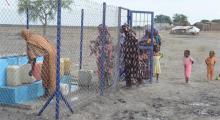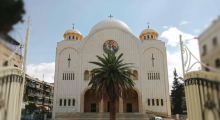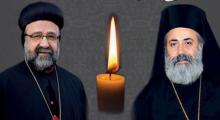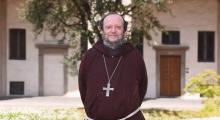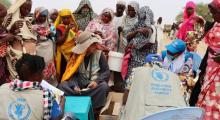Issued by the Catholic Center for Studies and Media - Jordan. Editor-in-chief Fr. Rif'at Bader - موقع أبونا abouna.org
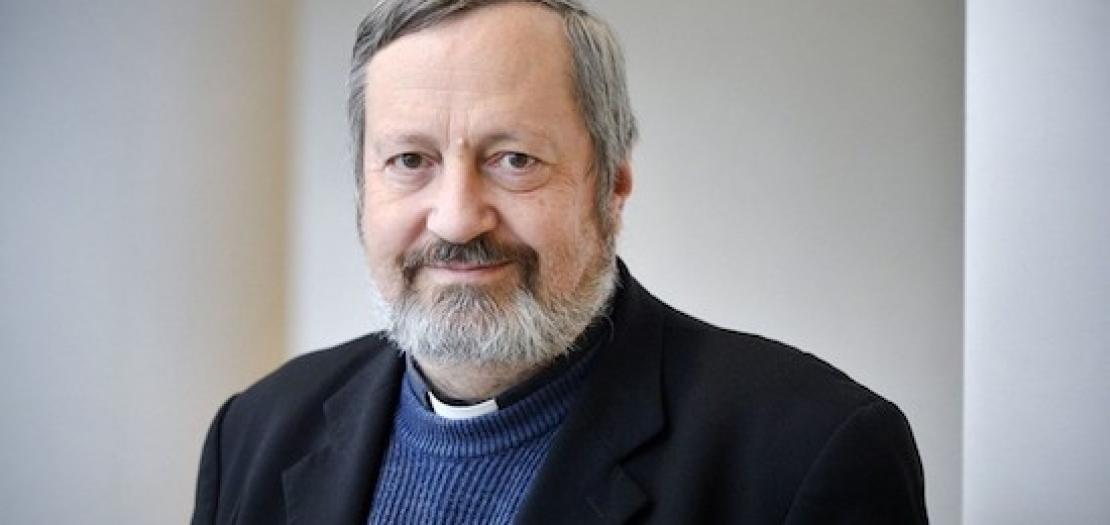
Pope Francis used a June 10 plenary assembly on aid to churches in the Middle East, known by the acronym ROACO (Reunion of Aid Agencies for the Oriental Churches), to express a desire to travel to Iraq next year.
Msgr. Pascal Gollnisch, director general of l'Oeuvre d'Orient, a French organization aiding Christians in the region, sees such a visit as an opportunity to help the country progress towards "shared citizenship" in the wake of years of conflict.
La Croix: You attended Pope Francis' speech at the ROACO meeting, in which he departed from his written speech to express a "willingness to go next year." Is it a promise or simply a desire?
Pascal Gollnisch: Every time the Pope departs from his text, he knows very well what he is doing. Pope Francis has also been talking about a visit to Iraq for a long time.
Cardinal Pietro Parolin, the Vatican Secretary of State, came to Iraq last Christmas: which is a sign that things are being prepared.
The Pope's announcement is not without value, especially since he was under no obligation to do so. That said, it does not yet mean "I will come" but "I would like to come." It was welcomed by members of ROACO with great enthusiasm and caution also because of obstacles that remain.
La Croix: Are these obstacles only security barriers or are they also political?
Pascal Gollnisch: They are only related to safety. No one doubts that the Shia authorities would be happy to receive the Pope.
The only constraint is to ensure their safety, and also to ensure that their safety does not interfere with that of the local population: the prospect of their arrival should not increase the risk of an attack or tensions between communities on the ground.
La Croix: Do you have any idea what the pope's program in Iraq might look like?
Pascal Gollnisch: We are not there yet! But we can imagine that, as always, this visit would have at least two dimensions: to meet with local Christians and show them his support, they who were victims of the Islamic State occupation.
And the pope could not avoid going to Qaraqosh, the largest Christian city on the Nineveh plain, populated mainly by Syrian-Catholics - but also to address all Iraqis.
The Pope's visit would be of interest to the country as a whole, helping it to move towards an inclusive pluralism and a truly shared citizenship.
La Croix: Do the members of ROACO also expect support for the ongoing reconstruction in northern Iraq?
Pascal Gollnisch: This trip would of course strengthen the Iraqi Christians' belonging to this country and the idea of a future for them in their homeland.
At our meeting in Rome, we noted the involvement of the Churches in the Mosul region with the January ordination of Chaldean Archbishop Najib Mikhael Moussa, and the ordination on June 7 of Syrian Catholic Coadjutor Archbishop Nathanael Nizar Wadih in Mosul's Al-Tahira Church.
We also took stock of the reconstruction of dwellings, which is very advanced in several Christian towns and villages on the Nineveh plain. The challenge now is to restart economic activity: to do so, we must mobilize entrepreneurs and also move towards a policy that is inclusive of all components of Iraqi society.
La Croix: Could we imagine that the pope would also go to Syria?
Pascal Gollnisch: He would like to go there, as we know, but this country is still in civil war.
With regard to this country, we are above all determined, together with all Catholic organizations providing aid to the Eastern Churches, to meet European leaders of the various governments and the newly elected members of the European Parliament - to alert them to the very negative consequences of economic sanctions on the civilian population.
We all witness, when we go there, the suffering of the Syrians, aggravated by very difficult living conditions.
We would like Europeans to be aware that these economic sanctions - in principle imposed on the Damascus regime - have completely unacceptable consequences for civilians already heavily affected by the war.



